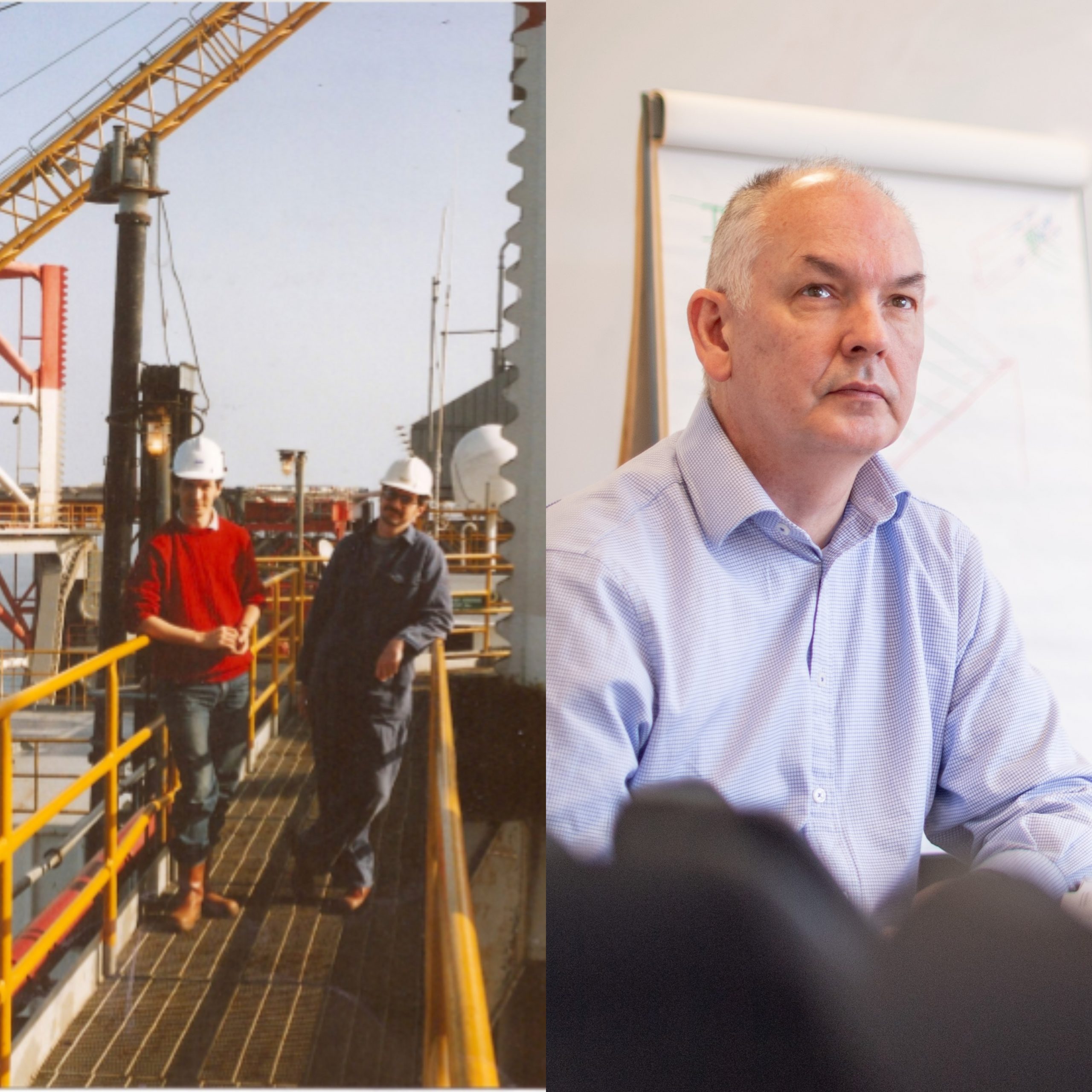Our industry in current times by Nigel Robinson

I joined the oil industry wanting to acquire the skills to get into offshore renewables, and today I am pleased to work in both sectors. Starting off as a mechanical engineer, I migrated somewhere along the line into management and from there, back to operations. The marine oil and gas industry took me to Asia and the Americas to work, but I have spent most of my career in sunny Aberdeen, addressing the harsh environment and deep-water challenges of the UKCS. Intense work often, dull never and always with something to learn. Offshore rigs and platforms are fascinating.
Has the industry changed much in this time or have my own perceptions mutated? Probably both. You see things quite differently when you are doing the work, and when you have to find work for others. My old boss once told me that it was easy to do well in the good times, but it takes character to get through the downturns. That was in 2000. I think we are entering our third oil price collapse since then. Somehow the industry always manages to pull through.
Some things about the industry have been constant, for instance, the focus on safety. The environmental agenda has gathered voice, but it is not a new thing either. In both, I have seen examples of real leadership coming from within the oil industry. Sadly, this is rarely recognized by the media. Meanwhile, the North Sea has depleted, production technology has got smarter and offshore renewables has gathered pace. Even oil town Aberdeen is diversifying, which must be a good thing.
A few years ago, I decided that my mojo was really the engineering, so I started to navigate back to project work. Apollo first got in touch to help with a tricky forensic analysis of downhole wear that then started to open doors to more opportunity. It was a breath of fresh air walking into the Apollo offices –the 2014/15 downturn was still stinging, but Apollo was busy, and there was an open, engineering-led culture, underpinned by sound values.
Today I head up the Marine and Offshore division, which encompasses support to the marine, renewables and drilling sectors. This might seem a surprising combination, but not if you think it is all about steel in the marine environment. There are advantages in having a foot in more than one sector. For instance, the project we are doing for Wave Energy Scotland on mooring connections is based very much on learning from FPSO moorings.
There is no doubting the enormity of what is going on at the moment and it will have impact for a long time. The best of people is already very evident in their caring, good humour and creativity. Sometimes the Oil and Gas sector is accused of being a ruthless machine, however, my experience is that it is just the collective efforts of fair-minded people, all trying to do the right thing within their given roles.
Economically, we know how things are when the oil price is down. Hopefully, recovery will be a lot faster than after 2014/15, but much depends on decisions taken far away. Meanwhile, for the North Sea, I think it will spur on the development of offshore renewables. I hope to see floating offshore wind move up the agenda and marine energy sources too – both opportunities for this part of the world. There is a massive export opportunity there and the UK has a head start.
Whatever stance you take about climate change, there is an obvious opportunity to use the skills, ingenuity and finance of today to build a cleaner, fuel-unlimited energy technology for the future. Now wouldn’t that be a good way forward for the engineers of the North Sea.